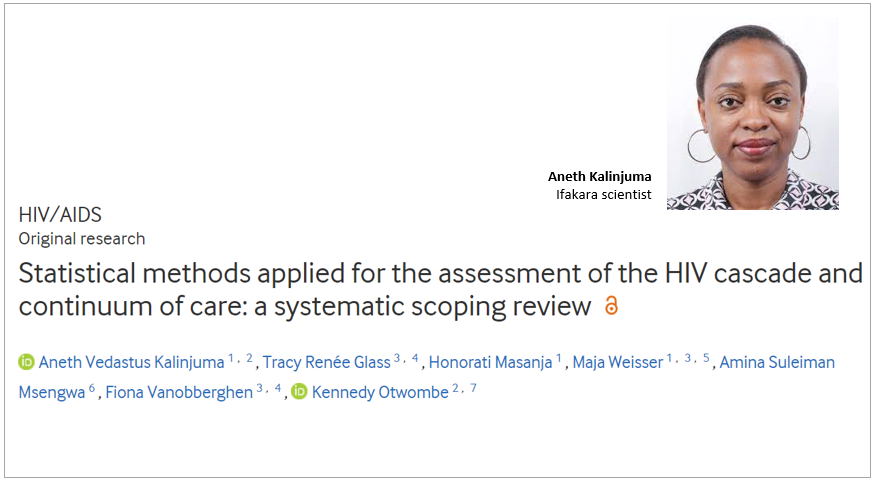
HIV/AIDS: Assessing statistical methods applied in research

Public health researchers, this is for you!
A recent comprehensive review led by Ifakara Health Institute’s Aneth Kalinjuma highlights a growing trend in utilizing longitudinal study design methods to assess the HIV cascade – a method that follows people over time to get a better understanding of how HIV care is progressing.
The review team also included scientists from the University of the Witwatersrand, South Africa; Swiss Tropical and Public Health Institute, Switzerland; University of Basel, Switzerland; and the University of Dar es Salaam, Tanzania
Why longitudinal studies rule
The increasing use of the longitudinal study design methods in the HIV cascade, according to Kalinjuma and team, is due to its capacity to provide additional information about transition dynamics along the cascade, establish detailed progress and identify additional areas for interventions.
Developed between November and December 2021, the review is one of the largest on this topic, involving the analysis of 300 articles. It is also the most recent and thorough review conducted on the methods used to assess the HIV cascade and continuum of care, with wide coverage and diversity.
Methodological guide recommended
In the review, Kalinjuma and colleagues call for the development of a methodological guide that outlines the application of various longitudinal design methods in the context of the HIV cascade and continuum of care.
The guide, along with corresponding frameworks, could offer guidance for future public health studies. The recommendations from the review were published in the BMJ Open journal in November 2023.
Read the publication here.
